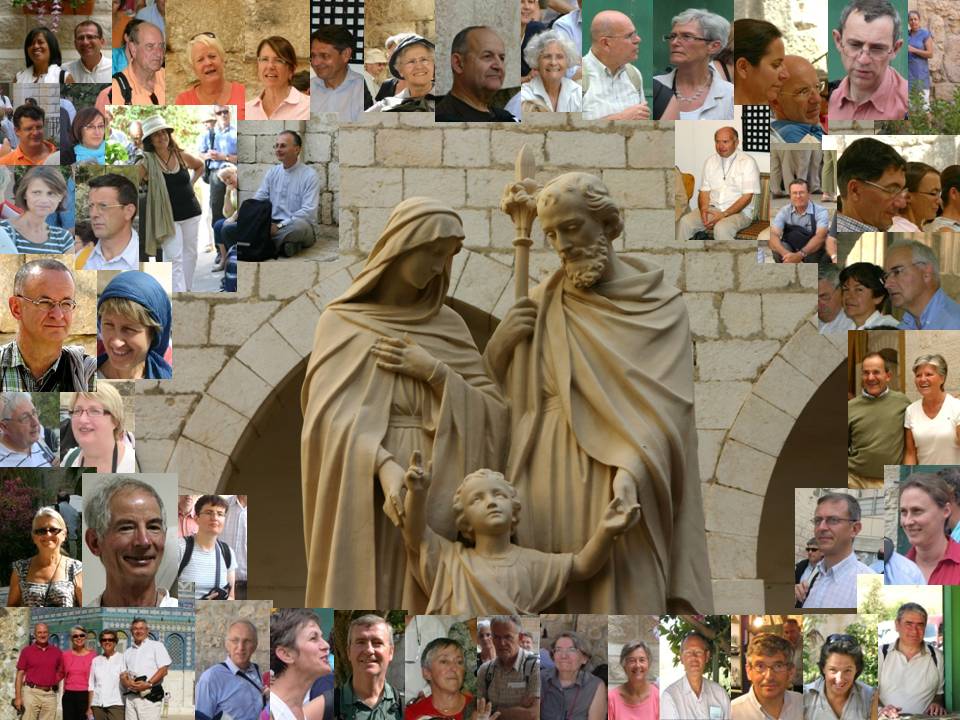These groups were planned by the founder of the institute of Notre Dame de Vie and are recognized by the Church according to the terms of canon law : “By means of a link determined in the Constitutions, an institute can associate with itself other faithful who strive towards perfection according to the spirit of the Institute and take part in its mission.”
Associates
Associates, whether priests or laypeople, receive a spiritual formation proper to them and spend time in the “desert”.
Following the Carmelite saints and the founder of Notre Dame de Vie, Fr Marie-Eugene, they put prayer at the centre of their lives in order to be witnesses of God in the everyday. They commit to an hour of silent prayer a day.
They receive the scapular of Notre Dame de Vie which makes them participants in Carmel’s Marian grace, and they commit by means of private vows.
Couples
Couples too live of the spirit of Notre Dame de Vie. They unite action and contemplation in their family and professional life, thereby showing that the realization of this synthesis transforms the personal life of the spouses, unifies the couple and constructs communion at the heart of the family.
Committing to a life of silent prayer allows them to found on God the general direction of their existence, and to radiate the love drawn from his Spring.
Couples take part in formation meetings including times of silent and liturgical prayer, learning and sharing. These times of replenishment renew their strength and fortify their links with the family of Notre Dame de Vie.
Commitment in the couples group happens through the spouses’ joint decision. The first stage allows them to take part in the Marian grace of Notre Dame de Vie through the reception of the scapular, while the second involves committing to a daily time of silent prayer in order to live the Institute’s contemplative and active ideal.
And more …
The institute of Notre Dame de Vie accompanies other groups, such as the Companions of the Child Jesus for children and the Frat’ for young people. The members of these groups have in common a daily commitment to silent personal prayer.


